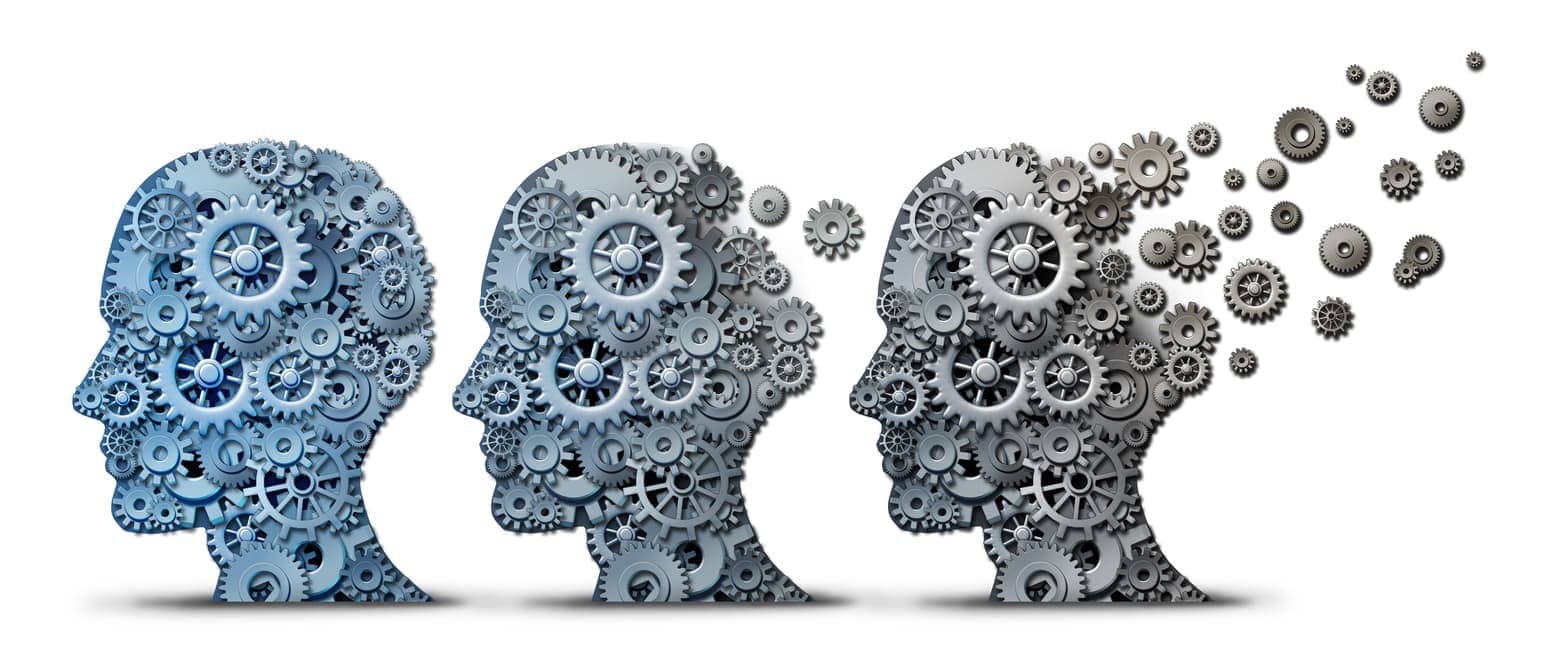
The Seven Stages Of Dementia: Understanding The FAST Scale
If you or someone you know has been diagnosed with dementia, you may have heard the disease discussed as having “stages.” These different stages are used to signify how the disease has progressed and what is happening currently to their mind and body. This helps caregivers, medical professionals and family members understand what is happening with their loved one and prepare them for the current and future changes.
There are several different tools memory care professionals use to determine an individual’s dementia progression. The most commonly used scales are the Global Deterioration Scale (GDS), the Clinical Dementia Rating (CDR) and the Functional Assessment Staging Test (FAST). Each of these scales has a different system for determining the stage and severity of an individual’s mental decline.
At Avalon, we tend to use the FAST Scale to help us determine the progression of memory loss so we know best how to treat our residents – and help family members. In order to serve you, we’ve put together some of our most frequently asked questions about the FAST Scale to help bring some clarity and understanding about this useful tool.
What is the FAST Scale?
FAST stands for Functional Assessment Staging Tool. This scale was developed by Dr. Barry Reisberg, who is a leading expert in Alzheimer’s disease. It’s used to help doctors, medical professionals and family members understand, talk about and follow the progression of dementias such as Alzheimer’s disease.
How does the FAST scale determine a person’s level of functioning?
Unlike other scales that focus primarily on cognitive decline, such as the GSD, FAST focuses on a person’s ability to function and perform tasks of daily living.
How does the FAST Scale break out the stages of dementia?
You have more than likely heard of the three overarching stages of dementia: early or mild stage, middle stage and late stage. The FAST scale goes deeper into each of these stages and breaks them down into more comprehensible and detailed descriptions.
What are the FAST Scale categories?
The FAST Scale divides the dementia journey into seven numbered stages. These are:
- 1, or normally functioning adult
- 2, or normally functioning senior adult
- 3, or early dementia
- 4, or mild dementia
- 5, or mid-stage dementia
- 6, or moderately severe dementia
- 7, or severe (end stages) of dementia
What does Stage 1 look like?
Stage 1 means that an individual is free of cognitive and functional decline. In short, they are mentally healthy, normal adults of any age. If you’re a family member of someone with dementia, you yourself are more than likely at Stage 1.
What does Stage 2 look like?
The second stage of the FAST Scale is defined as “normal aged forgetfulness.” This manifests in memory lapses like forgetting the name of acquaintances or misplacing items like car keys or glasses. Individuals may experience some difficulty concentrating and sometimes struggle to find the right words. According to experts, Stage 2 can also be considered “normal” for senior adults.
What does Stage 3 look like?
At this stage, the individual starts showing subtle signs of mild cognitive impairment that may only be noticeable to close friends and family. For example, someone may start repeating questions or telling a story over and over. If the individual is still in the workforce, their ability to perform their job will start to decline. Concentration becomes more difficult, and the person may be unable to perform overly complex tasks like organizing a party or doing their own taxes.
What does Stage 4 look like?
Stage 4 is when most individuals with dementia are diagnosed because signs of cognitive impairment become glaringly evident. The individual starts forgetting recent or major events, or has trouble remembering what month or year it is. While individuals still have a good level of independence at this stage and can remember things like their phone number, address and basic tasks, it becomes increasingly difficult for them to handle things like paying bills or fixing meals. At this stage, the senior is considered to be in the early stages of dementia.
What does Stage 5 look like?
In Stage 5, the person with dementia has progressed to the “middle” stage and can no longer live independently. They can still perform some basic tasks, such as being able to feed themselves, but someone else has to prepare the meals for them. At this stage, problematic behaviors can start to occur, such as confusion, wandering, hallucinations and suspiciousness. The person with dementia will require a full-time caregiver and will become more and more dependent.
What does Stage 6 look like?
Stage 6 can be considered the beginning of late-stage or severe dementia. The person will become so dependent on their caregiver that they will require 24/7 supervision and assistance for just about everything. They may start losing their ability to speak and have increasingly severe mobility issues. At this stage, many family members and caregivers find that it’s necessary to move the individual into a specialized memory care community.
What does Stage 7 look like?
Stage 7 is the final stage of cognitive disease. The individual’s ability to speak will dwindle and ultimately go away. He or she will lose their remaining abilities, becoming incontinent and unable to walk. Communication with others will soon become impossible. Finally, the body will start to shut down and the individual will pass away.
How can the FAST scale help determine what type of dementia my loved one has?
One interesting thing about the FAST Scale is that, if the individual has Alzheimer’s disease, any changes they experience will be in sequence – that is, FAST stages won’t be skipped over. If the individual loses certain abilities listed at a “later” stage but still retain abilities from an “earlier” stage (for example, if they can still dress themselves and choose clothes, but have only mild memory loss, their issues are not due to Alzheimer’s disease). This is incredibly helpful, because it means their situation can potentially be treatable.
How long does each FAST stage last?
There is no set timeline for how long a person will stay in the different FAST stages. The memory loss journey is unique to each individual, and the amount of time they stay in one stage or another is different from person to person.
How does the FAST Scale determine eligibility for hospice services?
Dementia is a progressive and terminal disease, but it is nearly impossible to determine how long a person will live. Hospice services can be incredibly helpful for those with late-stage dementia, but many caregivers aren’t aware that their loved one can qualify for these services. If a person with dementia is at Stage 7 of the FAST Scale, they can generally qualify for hospice services. The signs that doctors and professionals look for are incontinence, inability to handle the daily tasks of living and being unable to speak meaningfully or express their thoughts.
A diagnosis of dementia is life-changing and can be scary for everyone involved. Using the FAST Scale to determine the severity of someone’s dementia can help people feel informed and be proactive about the changes along the memory loss journey.
Avalon Memory Care is well-versed in the FAST Scale and helping families understand what’s ahead. If you have any questions about the FAST Scale, or if you’d like to find resources to determine what level you or a loved one may be experiencing, please contact us at 214-752-7050.
See More Articles
-
Visiting Your Aging Parent With Memory Loss at Avalon Memory Care
As a loving son or daughter, you naturally want the best of care for your senior parent. The compassionate assisted living caregivers at Avalon Memory Care want you to know that while your parent is living with us, he or she will receive nothing less than respectful, loving care within our comfortable, safe, and fully-staffed
-
Celebrating New Year’s Day in Memory Care
Families often find that celebrations with their loved ones in memory care are easier when they embrace new traditions. For instance, it may not be practical to expect your loved one to stay up until midnight on New Year’s Eve. Instead, consider throwing a New Year’s Day celebration, complete with a countdown to the first
-
Hope For the Future: Emerging Alzheimer’s Research
According to the latest statistics, as many as 5.5 million Americans are living with Alzheimer’s disease, and its prevalence is only expected to rise in the next few decades. At the same time, however, research into treatments for the condition is accelerating. With every passing year, we move a little further down the road toward
Testimonials
Schedule a Tour
Visit one of our 30+ campuses and experience our unique approach to memory care.












